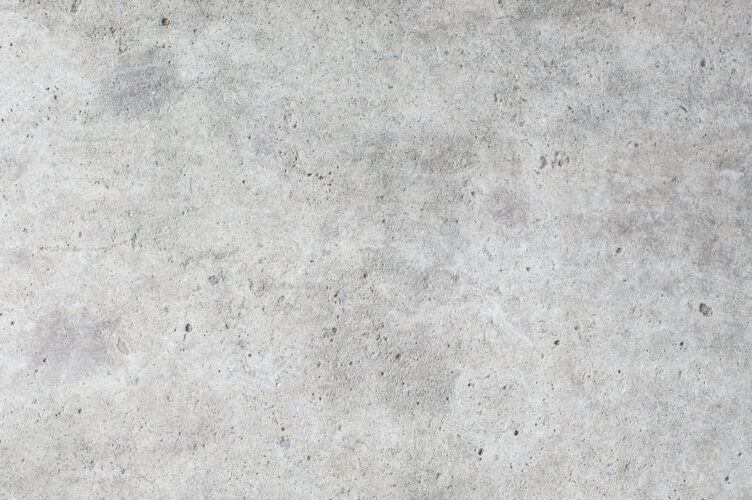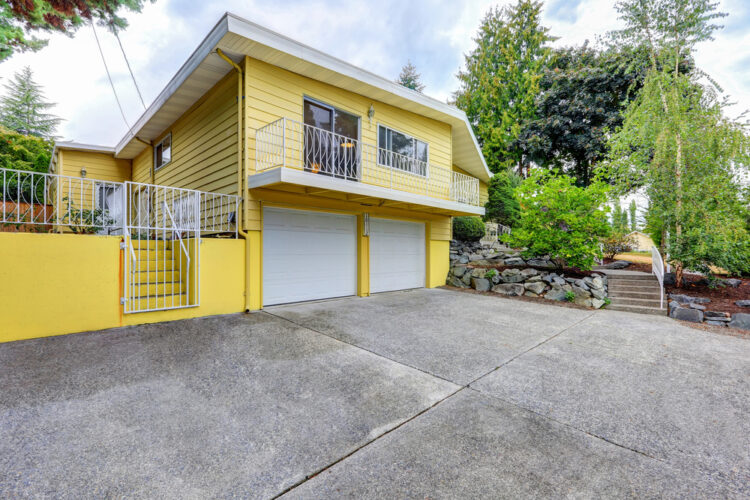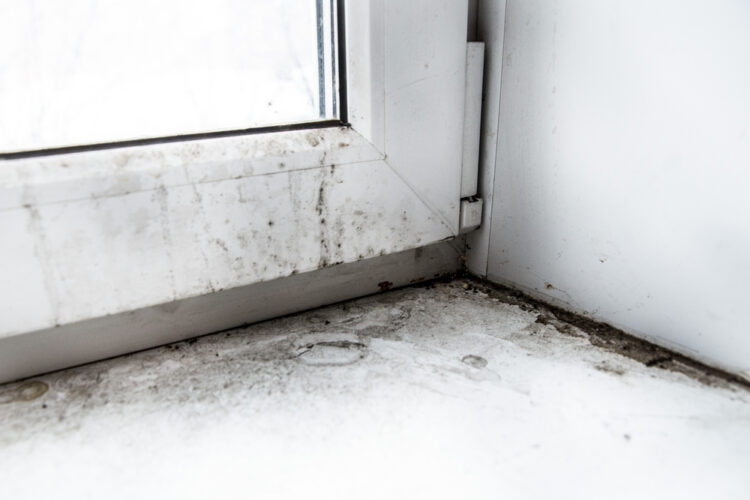I’m sure you’ll agree with me when I say this:
“The first impression is the last impression!”
What you should take away from the previous statement is this – “Things will always come down to the first thing”. Here, we mean appearance. If you want to be the cool guy on the block, you should probably tidy up your exterior.
That includes your concrete driveway.
Here you can find what size pressure washer you need to clean concrete.
It’s never easy to maintain a clean concrete driveway because of dirt and debris. From seeping oil to falling greenery, a concrete driveway needs to take the punishment. And this goes on till the end of the year.
The same goes for your concrete patch and other such establishments.
Solution?
You must hold on to your horses and think the matter through. Although there are established methods, you still need to develop options that work for you. And using pool chlorine to clean concrete could be a choice.
We won’t be discussing what chlorine is used in pools. We will discuss various effective techniques to help you manipulate them to your own will.
And that is the whole point of this review.
Can you use pool chlorine to clean concrete?

Cleaning concrete has quite some different aspects than cleaning household upholstery or an electric device. The #1 difference stands to be the choice of cleaning agents. And that brings us to the use of pool chlorine to clean concrete.
Pool chlorine fights water-borne infection. It’s one of the critical purposes of pool chlorine. The key ingredient for pool chlorine is calcium hypochlorite, which constitutes around 60-65% of the forte.
The pool chlorine isn’t just strong, it’s also easier to apply to the pool. This chlorine cleaner also comes in a hard form, is quickly dissolved and fights germs.
If you’re willing to use pool chlorine, then you may be encountering problems like:
- A mossy concrete path or driveway.
- A concrete path or driveway littered with messy lines created by seeping fuel. The small debris gets cemented by the fuel creating an artwork that’s not pretty.
If you face such problems, using pool chlorine can be the right bet. Being a calcium hypochlorite solution, it’s effective when dealing with tough stains and grimes on concrete. A slightly concentrated version, namely ‘Pool shock’ are often used in cleaning concrete-made roofs well.
The advantage is two-fold. One, you are getting the proper cleanup. And two, germ protection becomes very easy to maintain.
There’s another advantage.
You get to use one cleaning agent for two different purposes-cleaning the pool and the concrete driveway. If that doesn’t sound efficient, then we don’t know what is.
Even if you’re still thinking of a cheaper option such as bleach (2 gallons of bleach will do for a 20×40-feet standard pool), you need to calm down and think about the situation.
Bleach is strong. But it will only offer 5-6% strength, which is very minor compared to a pool chlorine cleaner. You may also lose the ability to fight tough grime and stains you may not have encountered before.
Enough talk, let’s get cleaning!
Using chlorine to clean driveway: Moving on with the cleaning process

The following steps will reveal the answer to your question: how to clean a stained concrete driveway. Bear with us as we take you for the ride that ends in a spotless and level driveway.
Warning!
The following steps may become boring after a while. We would advise you to power on through for the best possible results.
Step 1: Gather all equipment
We would recommend you gather the following equipment:
- A pair of safety gloves
- A sprayer
- Safety goggles
These will ensure your safety while operating with toxic pool cleaners. Having such equipment at hand is essential, as it will save you from problems like eye and skin irritation.
Step 2: Identify the rough spots
No matter if it’s cleaning an upholstery or an entire driveway, identifying the dirt comes first.
The spots on the concrete riddled with heavy streaks and filth need to get a good dose of the pool cleaner. These spots also need to be soaked longer (we will discuss this briefly). These are the reasons you need to consider when it comes to the application.
Step 3: Prepare the cleaning mixture (chlorine ratio for cleaning concrete)
The standard ratio for pool chlorine and water is 10:90. You must mix 90% water with 10% pool chlorine.
It’s a standard ratio. You should sit down with a calculator to get into more complex calculations. But that’s not very efficient. Eyeballing the ratio is the right approach.
Step 4: Start with the densely populated spots
As mentioned earlier, the densely populated spots are harder to clean. You’ll need to spray the proper amount and let it soak.
The thick spots should be left to soak for at least 15 minutes. The soaking will follow with cleaning and rubbing out the grime.
What about other areas?
A regular infection deserves nothing more than 10 minutes. You can start rubbing off the less rough streaks in around ten minutes.
Step 5: Rub off any dirt and rinse
Ensure no dirt accumulates while the grunge is soaking in the pool chlorine. Keep the rubbing going until you the driveway or path dries up.
You can gently rinse the whole space with water when this is over. It will further ensure the job is clean.
These are the basic steps that you could rely on. One thing you should take note of is that these steps don’t have to be followed thoroughly. You have a baseline and you have to work your way from there.
You may be dealing with something very strong (the grunge and spots!). If the going gets rough, you could go for pressure washing. Pool chlorine for pressure washing can be very effective if you want to get that old shine back.
Does pool chlorine kill mold?

There is a common misconception among people.
A pool chlorine cleaner doesn’t clean the concrete driveway.
That’s not true. With pool chlorine, we can guarantee you will find proper results. It’s just as effective as a bleach solution, which is effective when it comes to killing mold on patios and driveways.
Clean concrete with chlorine: The alternatives
Pool chlorine isn’t the only agent you could use to eliminate annoying grime. Other cleaning agents and formulas can help you with this endeavor.
For example, bleach is a popular cleaning solution among users because of being economical. You only need ½ a cup of bleach with 4-5 gallons of water. Soak for at least 20 minutes and then rub off the grime. Then rinse with water.
Vinegar takes a little while to attack the tough stains on your lovely concrete driveway. Throw vinegar on the streaky concrete and let it soak for 45-60 minutes. After the soaking, take soap water and clean off the concrete area.
But when it comes to the question of how to clean a concrete driveway with a pressure washer, there are specific steps you should follow:
- Properly mix pool chlorine with water.
- Make sure the hose isn’t clogged and it’s appropriately functional.
- Attach the hose to the washer and wand or lance towards the grunge.
- Make sure the water pressure isn’t too much. Keep it somewhere in the middle.
- When you’re done, get a bucket of water and run it through the pressure washer system.
- Let the mixture soak into the concrete.
- After 10-12 minutes, wash the mixture from the concrete with clean water.
Cleaning the concrete: a few tips
If you’re dealing with fresh oil stains, you may want to try cornstarch. It only takes around 30-45 minutes to soak in. Then you can wash off the stains by brushing or cleaning them with water.
But there have been instances where the concrete color changes between orange and ash. And that may pose a problem for some folks out there.
Among other considerations, you could always go with the proper cleaning routine. Keeping things regular is a good way of reducing extra hassle.
Final thoughts
Although using pool chlorine to clean concrete is adequate, we cannot ignore the other ways. We acknowledge pool chlorine does a better job. But it’s not the only way.
You have cheaper options like bleach, muriatic acid and so on. Even soap and water can sometimes come in handy.
But, if you think long-term, then pool chlorine does stand out. You don’t just have to use chlorine in the pool, you can use it on your concrete pavement as well. Also, soaking and cleaning are easier with pool chlorine.
So, we believe pool chlorine wins the argument over every other solution. The benefits far outweigh the negatives, which is what most people want.
We hope our guide helps you with the challenging task of keeping the concrete paths of your home clean and smooth.
Good luck!